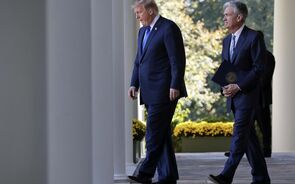Terrorist bombs in Spain
1 Mensagem
|Página 1 de 1
Terrorist bombs in Spain

Who bombed the trains?
Mar 12th 2004
From The Economist Global Agenda
As the death toll nears 200 after the bombings of four commuter trains in Madrid, the Spanish government insists that the Basque terrorist group ETA remains the chief suspect, despite suggestions that al-Qaeda might have been responsible
MARCH 11th 2004 is likely to remain etched in the memories of Madrid’s citizens in the same way as September 11th 2001 is in the minds of New Yorkers. Three days before Spain’s general election, ten bombs hidden in rucksacks exploded without warning on four packed commuter trains in Madrid, at the height of the morning rush hour, killing 199 people and injuring almost 1,500. It was Spain’s worst terrorist outrage, and the worst carnage the country has suffered since the end of its bloody civil war 65 years ago.
The government immediately blamed ETA, which has killed more than 800 people in its campaign of more than 30 years to win independence for the already autonomous Basque region of north-western Spain. In many respects, it seemed a reasonable assumption. The outgoing prime minister, José María Aznar, of the conservative People’s Party (PP), has taken a tough stance against ETA, including mass arrests of its members and supporters, and the banning of its political wing. As a result, the separatist group last year managed to kill only three people. ETA had been expected to try to send a message, in the final days of the election campaign, that it was still in business. Only two weeks ago, the security forces seized a huge load of explosives destined for Madrid. Last December, Spanish police said they had foiled an ETA plot to blow up a train in a Madrid station. And in the summer, police arrested an ETA cell that had planted explosives on a railway track outside Madrid.
However, the bombings seemed out of character: ETA has usually conducted targeted attacks against individual politicians or the security forces, not indiscriminate ones against masses of civilians—though it did blow up 21 people in a supermarket in 1987. Arnaldo Otegi, the leader of Batasuna, ETA’s outlawed political front, immediately denied that the group was responsible, pointing a finger instead at the “Arab resistance” (on Friday, Basque public television said ETA itself had also issued a denial of involvement). Though Mr Otegi's comments were initially met with scepticism, within hours of the bombing some evidence emerged of possible Islamist links to the attack. A stolen van was found in a town near Madrid, through which the four bombed trains had passed, containing detonators and a tape of verses from the Koran. And a London-based Arab newspaper said it had received an e-mail, purportedly from a group allied to al-Qaeda, claiming responsibility for the bombs (and hinting that a further attack on America was imminent).
On Friday, as Spain began three days of mourning for the victims of the train bombs, Mr Aznar said that no line of inquiry had been ruled out. However, he strongly defended his assumption that ETA was to blame, citing its recent plots and saying any Spanish government that had not “lost its head” would make the Basque separatists its principal line of investigation.
Since Mr Aznar has been a staunch supporter of President George Bush’s war on terrorism, and has sent Spanish troops to Iraq (despite the opposition of most Spaniards), al-Qaeda and its allies would certainly not be lacking in motives. But terrorism experts remained sceptical, pointing out that Osama bin Laden's network does not normally admit to its attacks so clearly and so promptly—often it does not admit to them at all. Since September 11th 2001, the group and its associates have largely confined themselves to attacks in Muslim countries. If it turns out that al-Qaeda was involved in the Madrid bombings, governments across Europe might reasonably fear attacks on their territory. Such worries sent shivers through Europe’s financial markets on Thursday.
Unlike its backing for the war in Iraq, the Spanish government’s crackdown on ETA has proved popular. Recent opinion polls had shown the PP set to cruise to a third successive election victory under Mr Aznar’s chosen successor, Mariano Rajoy, with a lead of around six percentage points. But what now? Political commentators in Spain argued on Friday that the election might hang on who turns out to have planted the train bombs. If ETA proves to be the culprit, voters might re-elect the government to express their support for its tough stance on Basque terrorism (though some might conclude that its policy had been shown to have failed, and vote against it).
On the other hand, if, by Sunday, it looks like al-Qaeda was responsible, voters might conclude that the government’s support for the Iraq war had put Spain’s security at risk. Many might then switch to the opposition Socialists—who have supported the tough line on ETA but opposed the Iraq war.
Both main parties suspended their campaigning after the bombings, but Mr Aznar insisted the election would go ahead on Sunday as planned. He called on Spaniards to take part in nationwide protests against terrorism, to be held on Friday evening. The Socialists’ leader, José Luis Rodríguez Zapatero, joined the prime minister in urging everyone to take part in the demonstrations. The non-violent Basque Nationalist Party (PNV), while a critic of Mr Aznar's policies on the region, said it would also take part. For the moment, at least, the Spanish people are united in their grief and in their anger at whoever committed the atrocity.
Um abraço,
MozHawk
Fonte: www.economist.com
[/img]
1 Mensagem
|Página 1 de 1
Quem está ligado:


